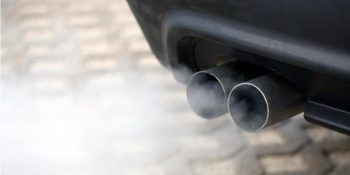
As the Standards Organisation of Nigeria (SON) releases new approved Nigerian Industrial Standards for petroleum products imported into the country, the Department of Petroleum Resources (DPR) said that contrary to doubts about its implementation, the agency has what it takes to make importers play by the rules.
DPR Head of Public affairs, Dorothy Bassey told SHIPS & PORTS DAILY that beyond the paper work DPR will go the extra mile to test the imported petroleum products in the laboratory to ensure they meet the required specifications.
“We won’t just take what the importers say. We have to test it by ourselves to ensure the approved standards are followed,” she said. According to her, the DPR has always compelled importers of petroleum products to follow set standards and implementing the new standards would not pose any challenge.
However, beyond the assurance, some stakeholders believe that the DPR should wake up this time around as the staff has been known to be compromised in the past by allowing bad fuel to come into the country.
They even advised that the Economic and Financial Crimes Commission (EFCC) should set its staff to monitor the monitoring team who may be easily bribed by the importers to allow toxic fuel to come into the country.
But the Director of the Centre for Petroleum Energy Economics and Law, University of Ibadan, Professor Adeola Adenikinju, told SHIPS & PORTS DAILY that the implementation by DPR and SON is vital to the success of the scheme. He said the review of the standards is a good policy so Nigeria do not become a dumping ground for toxic fuel.
According to him the vehicles we drive in this country are built to use certain content of fuel and if this is abused the vehicle is easily affected which is what has been happening in the country.
He noted that every country must have set standards which should easily followed. In the case of petroleum products, he said that the Sulphur content will determine the fuel quality.
“In some countries they have premium and regular fuel based on the sulpur content. The regular fuels are cheaper and they burn quickly. They are not like premium petroleum which is used for vehicles with very big engine.”
He noted that while vehicles get damaged easily is because we don’t monitor the quality of fuels which we have paid dearly for.
“Now that SON has come with specification it will be very good if they can effectively monitor its implementation and the civil society and journalists should help put them on track by ensuring that proper monitoring is done,” he affirmed.
SON recently released new approved Nigerian Industrial Standards for petroleum products as part of efforts to reduce the sulphur content of fuels imported into Nigeria and other West African countries from Europe.
The development was communicated in a letter to Africa Network for Environment and Economic Justice, ANEEJ, endorsed by Head of Department, Product Certification Directorate, Tersoo Orngudwem, on behalf of the Director-General and Chief Executive Officer of the Standards Organisation of Nigeria, SON.
“The approved reduction in the sulphur content of imported petroleum products is in line with standards accepted worldwide.
“I am also to inform you that recently approved Nigerian Industrial Standards for Petroleum Products, in which the specification for sulphur was reviewed downwards in line with the world trend is as follows: NIS: 116:2017 – Standard for Premium Motor Spirit (PMS) – Sulphur Content – 150ppm (max); NIS: 949: 2017 – Standard for Diesel Fuel (AGO) – Sulphur content – 50ppm (max) and NIS: 949:2017 – Standard for Household Kerosene (HHK) – Sulphur Content – 150ppm (max),” part of the letter read.
